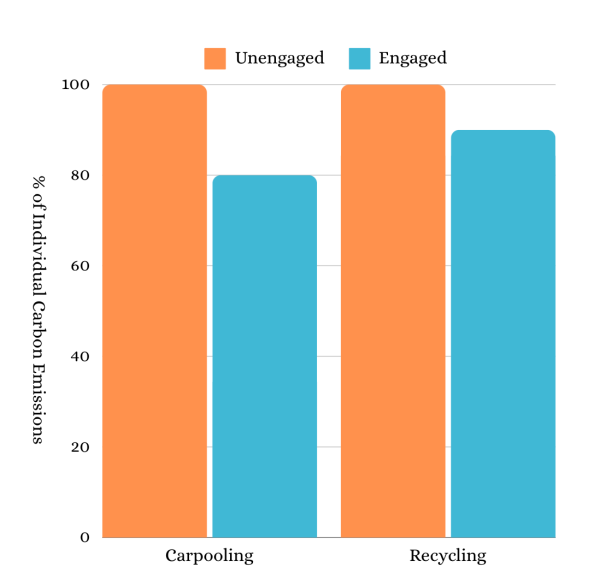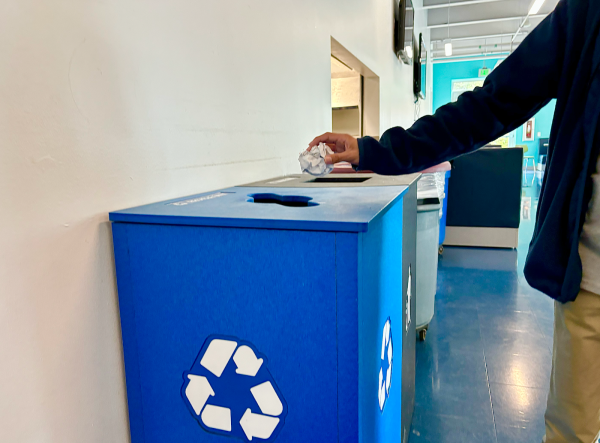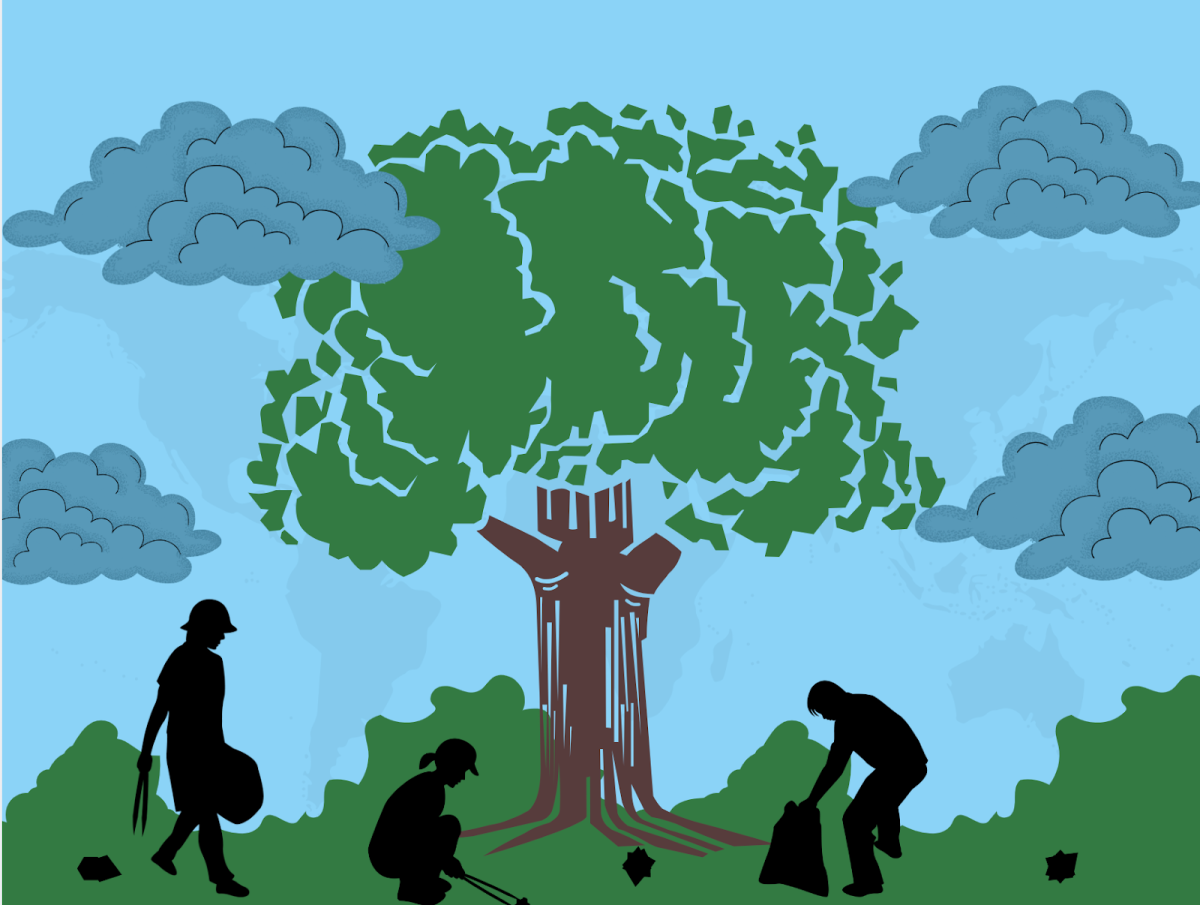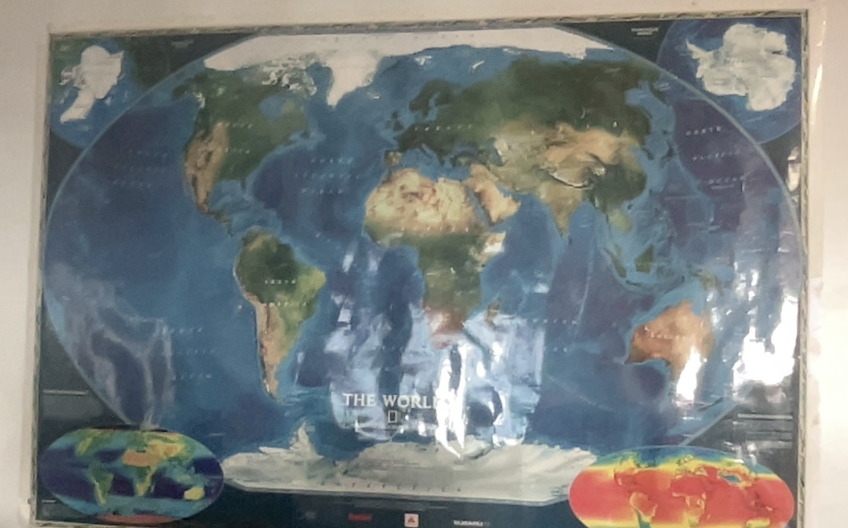It feels as though every day the climate crisis grows more and more pressing, and even more so overwhelming, from littering to the destruction of cities to the feeling of the air getting hotter and the planet growing warmer around us. According to a survey by the 4-H organization, 75% of teens worry about the planet’s future and are left feeling as though nothing can be done. It’s easy for young people to feel hopeless when it comes to the environmental crisis– after all, we live in a world where they are perhaps the most aware of the state of the environment, with the least power to make meaningful change. Or at least, so it would seem. In actuality, young people and students have just as much power, if not more, to make fundamental changes for the environment and their future. And that change starts in your own life.
Leading an environmentally conscious life is the most obvious way any individual can work to help save the environment, and the impact lifestyle choices can have on the world at large shouldn’t be taken for granted. “Consumption is probably the biggest place where we can have an impact,” said Sharon Carswell, an AP Environmental Science teacher at The Village School, when asked about how individuals can make a difference for the environment. “Whether it’s using something sustainable that will last a long time, or not consuming things that are packaged in a lot of plastic.” According to a study conducted in Sweden during 2023 on SpringerLink, individuals who simply participated in the recycling of disposable plastic products saw a 10% immediate decrease in their carbon footprint.

Meanwhile, in the United States in particular– where we contribute to more than 10% of global greenhouse gas emissions as of this year– being conscious of one’s emissions is an essential way people can work to lessen humanity’s impact on the environment. By choosing to carpool just once a week, the World Wildlife Fund reports that you can reduce your carbon emissions by 20% as of 2017.
There’s generally no question that there are things people can do to lead a more environmentally conscious life. There are no doubt thousands of essays, articles, and videos on the internet detailing the many ways in which YOU could and should save the environment if you just tried a little harder. But the issue, especially for students and children, comes not in knowing what to do, but how (and sometimes, more pessimistically, why.) Living under somebody else’s roof, where a busy parent is buying the groceries, getting specific products, figuring out how to throw them away, and managing how the family gets to work or school, young people often just don’t feel like they’re in the position to make (or responsible for making) more environmentally conscious decisions, even if they’re aware it’s the right thing to do.

When commenting on this mentality, Carswell urges students to make efforts with their parents or guardians to create a more environmentally sustainable household. She states that it is especially important for the more environmentally conscious generation to spread awareness to their older family members. Although it would require extra initiative on the part of the child, talking to parents about simply keeping a reusable bag in their car for groceries or looking into carpooling with a neighbor on their way to school are small lifestyle changes the student can advocate for that make a significant difference. “You can also take on more responsibilities yourself to make the household more sustainable,” suggests Carswell. “If you go to your parents and suggest that you set up the recycle bin and you find a place to take it and you oversee the whole process, I don’t think many parents are gonna complain about that.”
Finally, the last essential step in making change involves individuals recognizing the collective impact they can have on the environmental crisis. Aware that they are just one out of over eight billion, many people question the real impact of their choices on the environment. However, the power that the collective consumer body has to make a meaningful difference cannot be overlooked. “If everybody’s making even just a small difference daily that’s going to add up to larger impacts,” Carswell states. “Even if you’re just changing one aspect or habit in your life.” For example, if almost every individual in the US just did something like taking up recycling, statistics from the University of Manchester in 2022 suggest that could reduce greenhouse gas emissions by 276 million metric tons annually (that’s basically like the US going car-free!) “Making changes influences others to change as well,” Carswell also mentions. “But if no one is doing anything then that encourages others not to do anything either.”
Another key player in the environmental struggle is corporations. While it’s true that corporations are just as responsible, if not more, for their impact on the environment than an individual’s household, consumers are the ones with the ability to hold them responsible. A major method for doing so is boycotting. Although the term sounds scary, it all comes down to recognizing that you have a choice not to purchase from companies you do not support– and fortunately, in a free market economy, it’s easy to find affordable alternatives with just a little bit of research.
“Big cutting movements… have always been effective,” states Carswell. “[For example,] Chick-fil-A and a couple of other fast food companies… were pressured into changing some of their ingredients [a few years ago] because of a boycott. People were just saying ‘Hey, we don’t like this, and we would prefer this.’ and the companies were going to listen.” Essentially, when enough of their consumers demand changes, companies have to make them. “When companies see their consumer base [is] buying something else that is more sustainable, and they’re losing money, they will make changes [to be more sustainable], and give the people what they want, because it’s gonna affect their bottom line otherwise.” The choice to avoid shopping at certain stores or buying from certain brands when possible, and encouraging others to do the same, can go an incredibly long way.
There is no doubt that something needs to be done about the climate crisis, and everybody has a part to play, even students. Putting effort towards making small lifestyle changes, from recycling to carpooling, can make an invaluable impact on alleviating the environmental crisis, but making efforts to hold other individuals, communities, and corporations responsible for the environment has proven even more essential to making meaningful change. By taking the initiative within their household and community, young people and The Village School’s students can do a significant amount for saving the planet and saving their futures.
References:
Enlund, J., Andersson, D., & Carlsson, F. (2023, August 18). Individual carbon footprint reduction: Evidence from pro-environmental users of a carbon calculator – environmental and Resource Economics. SpringerLink. https://link.springer.com/article/10.1007/s10640-023-00800-7
Reducing the impact of Commuting | Magazine articles | WWF. World Wildlife Fund. (n.d.). https://www.worldwildlife.org/magazine/issues/summer-2017/articles/reducing-the-impact-of-commuting
Teen Environmental Impact Survey. National 4-H Council. (2024, February 23). https://4-h.org/about/research/teen-environmental-impact-survey/#:~:text=for%20Future%20Generations-,Addressing%20climate%20change%20NOW%20is%20top%20of%20mind%20for%2084,part%20and%20take%20action%20now
Waugh, C., Name, k, Why ‘Green Consumerism’ is not the Solution? | Cities Explained, Hope, & Trip, U. (2022, July 7). Corporations vs. consumers: Who is really to blame for climate change?. Global Social Challenges. https://sites.manchester.ac.uk/global-social-challenges/2022/07/07/corporations-vs-consumers-who-is-really-to-blame-for-climate-change/








